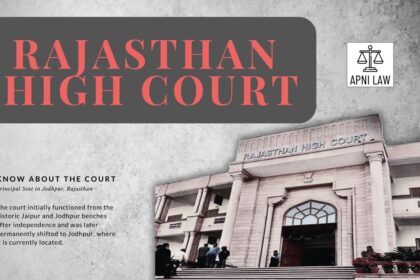Code:
Except as otherwise expressly provided, all evidence taken in the course of the trial or other proceeding shall be taken in the presence of the accused, or, when his personal attendance is dispensed with, in the presence of his pleader:
1[Provided that where the evidence of a woman below the age of eighteen years who is alleged to have been subjected to rape or any other sexual offence, is to be recorded, the court may take appropriate measures to ensure that such woman is not confronted by the accused while at the same time ensuring the right of cross-examination of the accused.]
Explanation.—In this section, “accused” includes a person in relation to whom any proceeding under Chapter VIII has been commenced under this Code.
STATE AMENDMENT
Gujarat
In the Code of Criminal Procedure, 1973 (hereinafter referred to as “the principal Act”), in section 273, after the words “in the presence of his pleader”, the words “or, as the case may be, through the medium of Electronic Video Linkage when the court on its own motion or on an application so directs in the interests of justice” shall be added.
[Vide Gujarat Act 31 of 2017, sec. 2.]
Jharkhand
Amendment of Section 273.–In section 273 of Code of Criminal Procedure, 1973, in its application to the State of Jharkhand:–
(i) After the words “All evidence taken in the course of the trial or other proceeding shall be taken in the presence of the accused,” the word “either in person or through the medium of electronic video linkage” shall be inserted.
[Vide Jharkhand Act 2 of 2016, s. 3]
Explanation:
This section emphasizes the fundamental principle of a fair trial, which mandates the accused’s presence during the recording of evidence. However, it acknowledges situations where the accused might be absent and provides guidelines for proceeding in such cases.
- Accused’s presence: The general rule is that the accused must be present when evidence is being recorded. This allows the accused to hear the evidence, cross-examine witnesses, and participate in the legal proceedings.
- Absence of accused: If the accused is absent, the court has the discretion to proceed with recording evidence. However, it must first satisfy itself that:
- The accused was properly served with a summons to attend the proceedings.
- The accused’s absence is without sufficient cause (i.e., not justified).
Illustration:
Imagine a case where a witness is scheduled to testify against the accused. The accused, despite being served with a summons, fails to appear in court without any valid reason. In this scenario, the court can, after confirming the accused’s absence is unjustified, proceed to record the witness’s testimony in the accused’s absence.
Common Questions and Answers:
Q: What if the accused is absent due to illness?
- A: If the absence is due to a genuine illness, the court may consider postponing the recording of evidence. However, the accused should provide appropriate medical documentation to support their claim.
Q: Can the accused’s lawyer be present if the accused is absent?
- A: Yes, the accused’s lawyer can still be present during the recording of evidence, even if the accused is absent. The lawyer can cross-examine witnesses and represent the accused’s interests.








